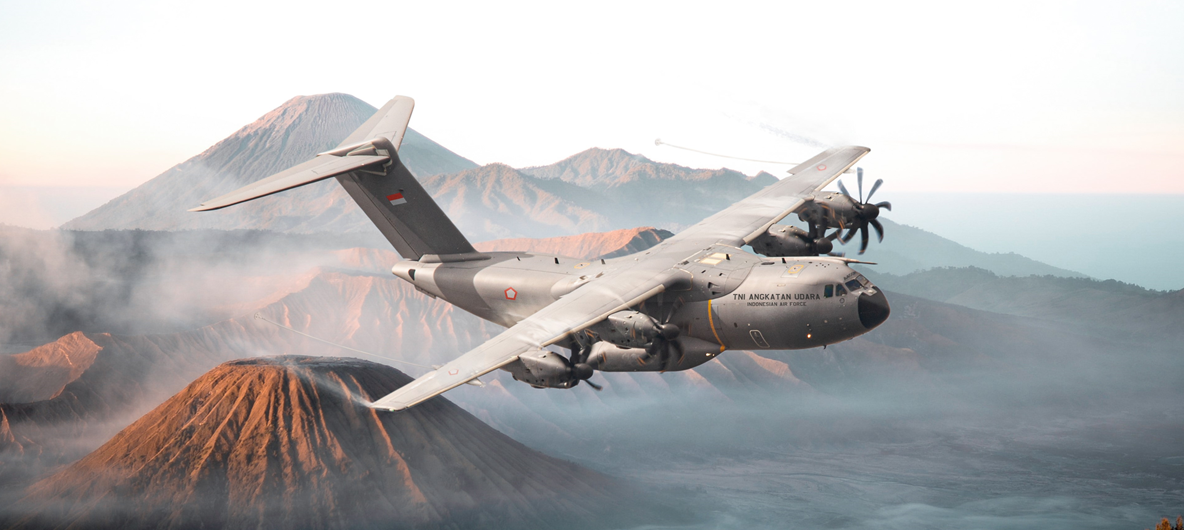
A400M
PARIS–Germany, France, the Netherlands and the Czech Republic are discussing the future of strategic airlift and considering solutions for heavy and outsized cargo aircraft through the Permanent Structured Cooperation (PESCO) initiative.
The Strategic Air Transport for Outsized Cargo program (SATOC)—approved as part of the fourth wave of PESCO projects in November 2021 and in its very early stages—was discussed by French Air Force Chief of Staff Gen. Stéphane Mille during a parliamentary hearing April 6.
The project had originally been presented in 2018 as part of a second wave of PESCO projects, but was rejected due to a lack of maturity.
Germany is the leading nation for the project, which also involves France, the Netherlands, the Czech Republic, Finland, Hungary, Italy, Poland, Portugal, Slovenia and Slovakia. Sweden has observer status.
Germany asked the European Defense Agency to be involved by assisting the partner countries in the harmonization of the operational requirements, a decision announced in January 2023.
In the short- to midterm, the aim is to identify a sufficient number of project participants, harmonize requirements, issue a common operational requirements document by 2024, and then identify and agree to common solution options by 2026.
SATOC aims to provide the armed forces of the partner countries with an aircraft capable of transporting outsized equipment. The mission is currently performed by Antonov An-124s under the Strategic Airlift International Solution (SALIS) contract, extended in 2021 for a further five years. The An-124’s end of life is projected in the 2030s and no European country has such a heavy airlift capability. This—along with the war in Ukraine and the destruction of the Antonov An-225 Mriya and several Antonov aircraft—has highlighted the risk to European strategic autonomy in this field.
The need is real and long-lasting. Despite the ramp-up of the Airbus A400M and Airbus A330 MRTT, between 10% and 15% of cargo cannot be transported by these aircraft for military power projection, a 2020 French Senate report said.
Once operational requirements have been defined, the platform question will arise. But discussions have already begun and several solutions have been envisioned, none of which are currently favored, a source inside the French Air Force says.
Participating countries could consider refurbishing Antonov An-124s, adapting existing civilian cargo aircraft such as the Airbus A350F, exploring a militarized version of the A380, or even developing a new aircraft from scratch.
A difficulty with civilian platforms would be removing the intermediate floor to achieve an appropriate height. But that implies airframe and structure modification, with associated technical risks. The integration of a roll-on/roll-off capability would also have to be considered. As a European OEM, Airbus is exploring the topic.
At this stage, it must also be determined whether the European market can be profitable and possible export opportunities. After all, while the need for this type of aircraft is enormous during the launch of a military operation, it is not a capacity used on a daily basis.
